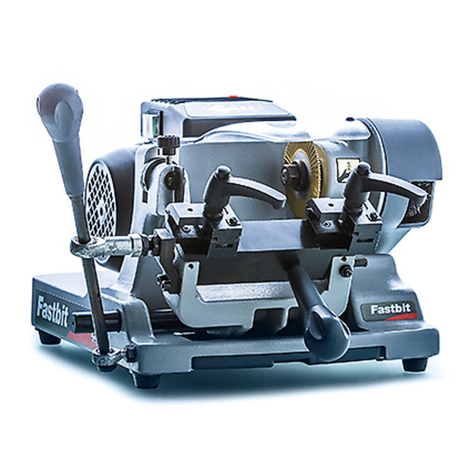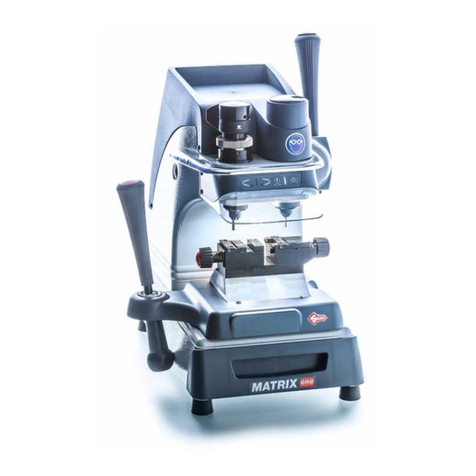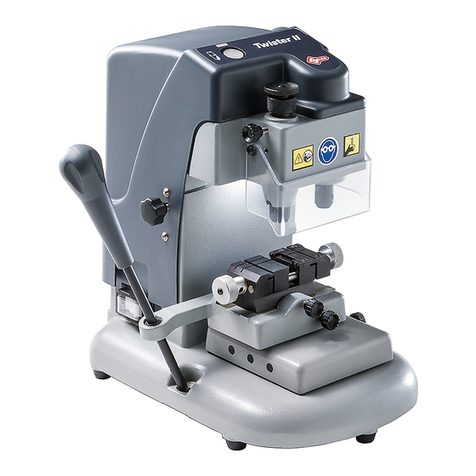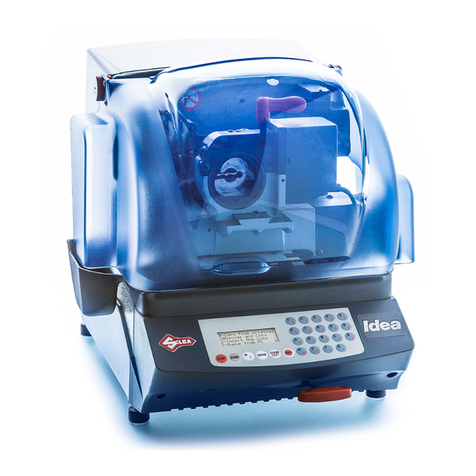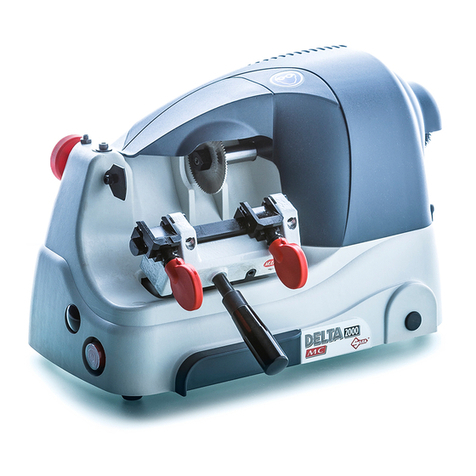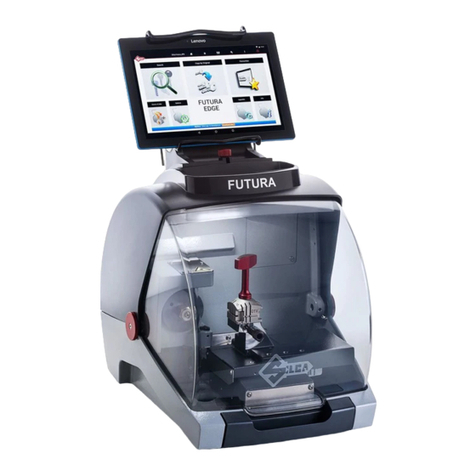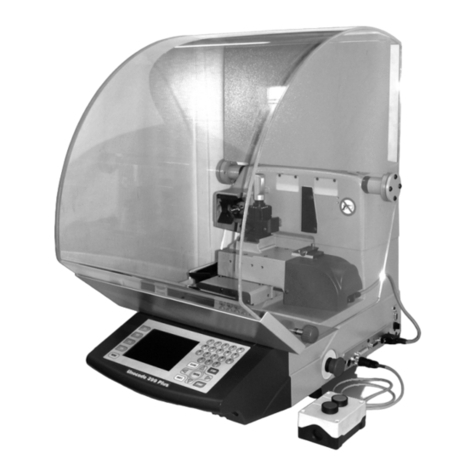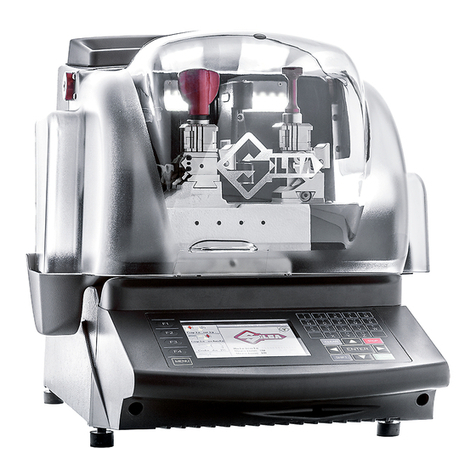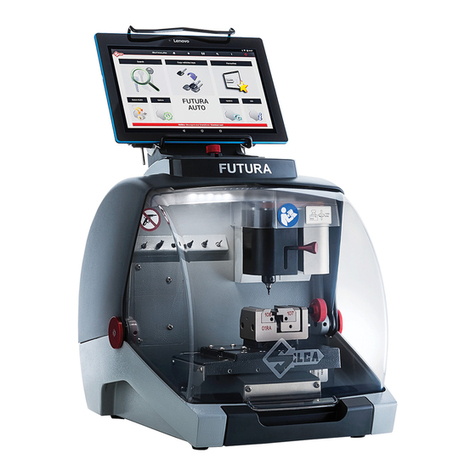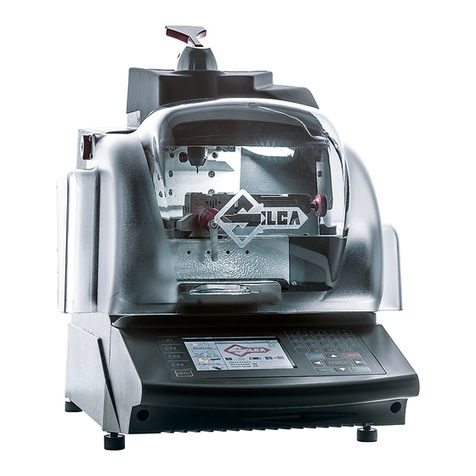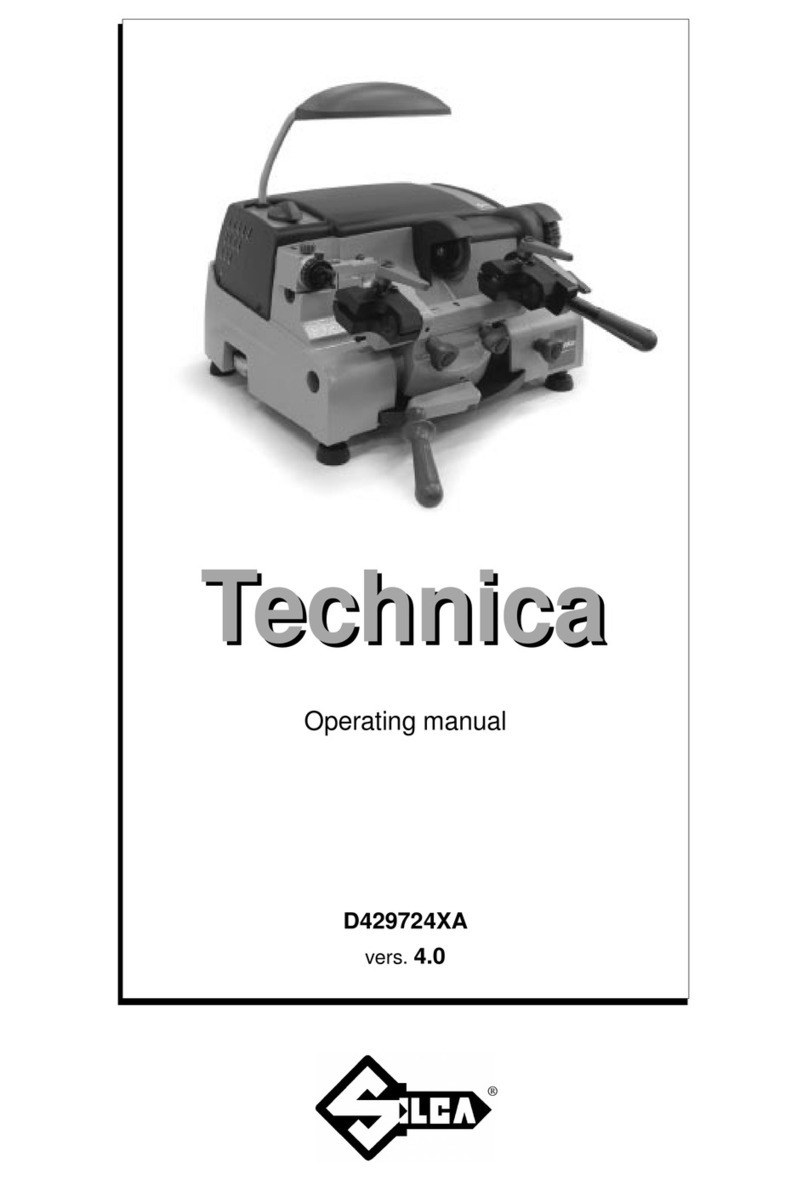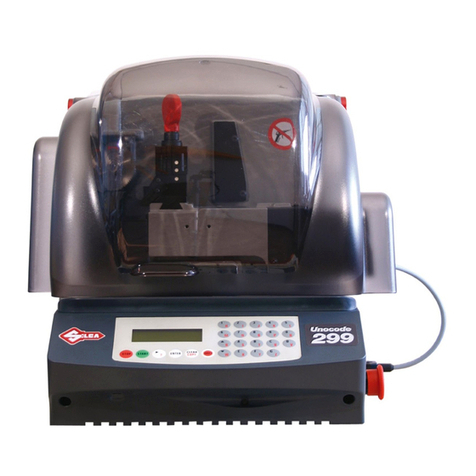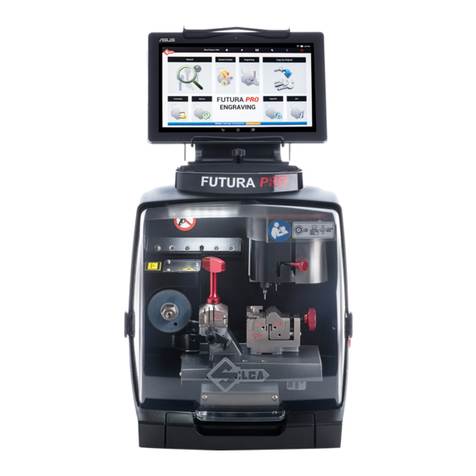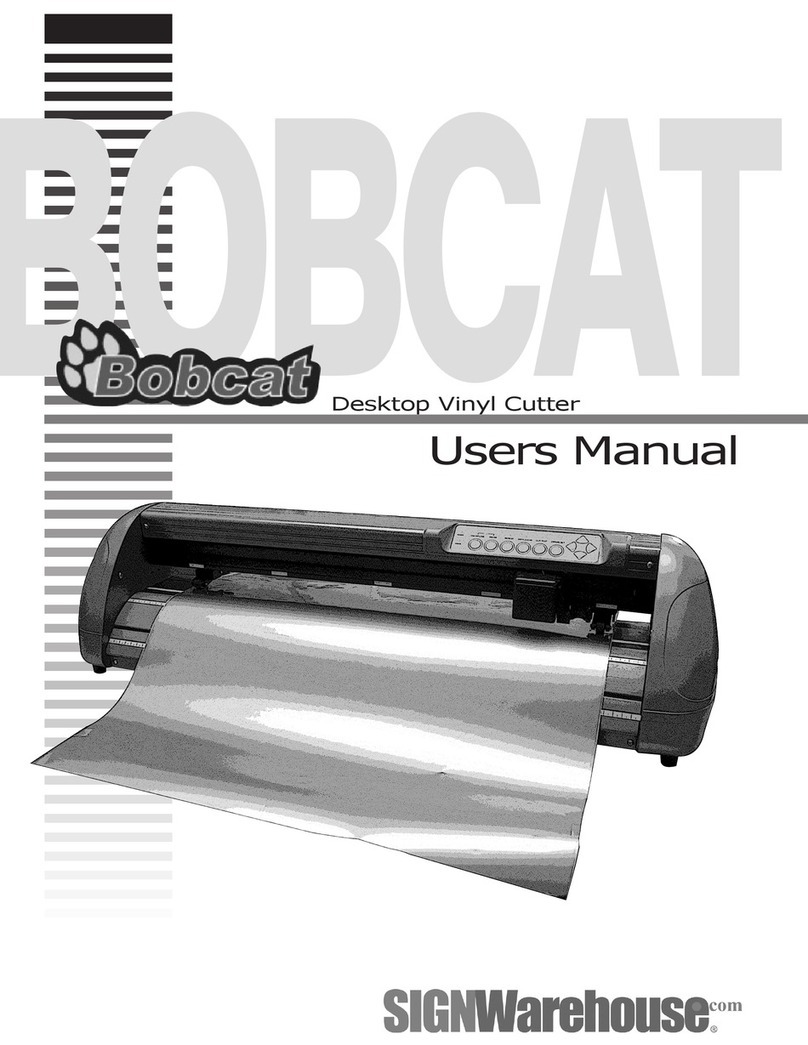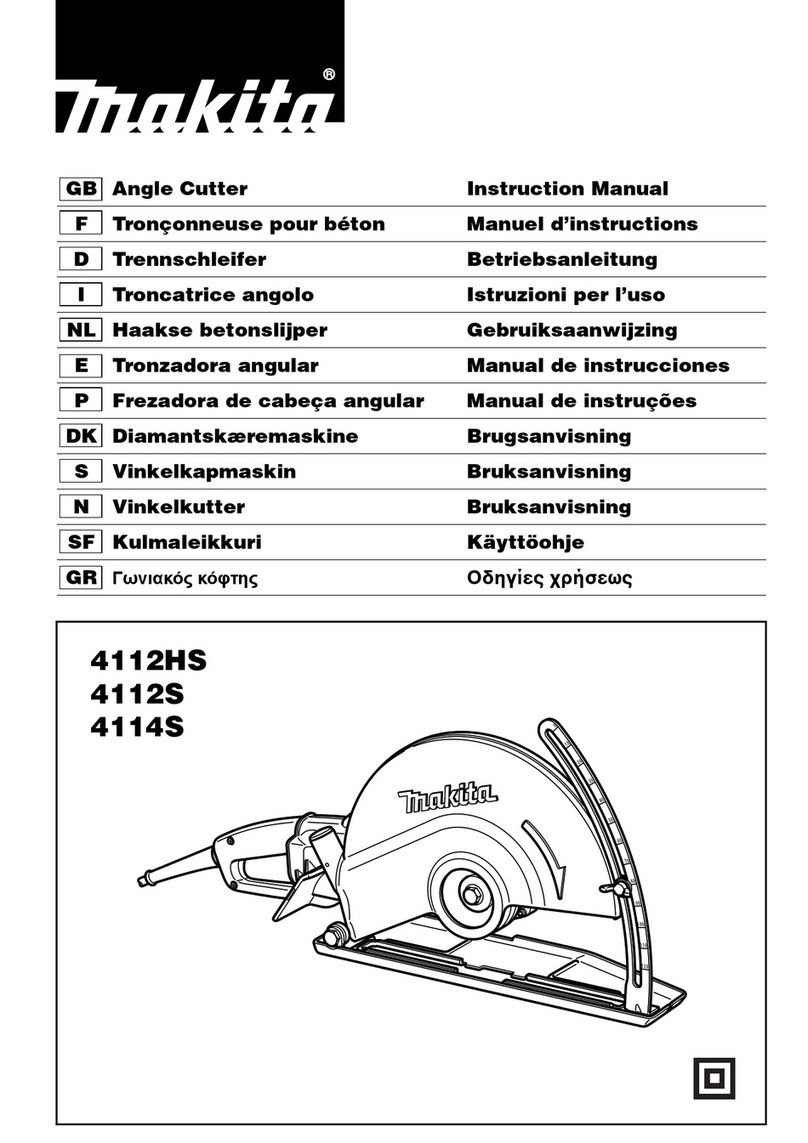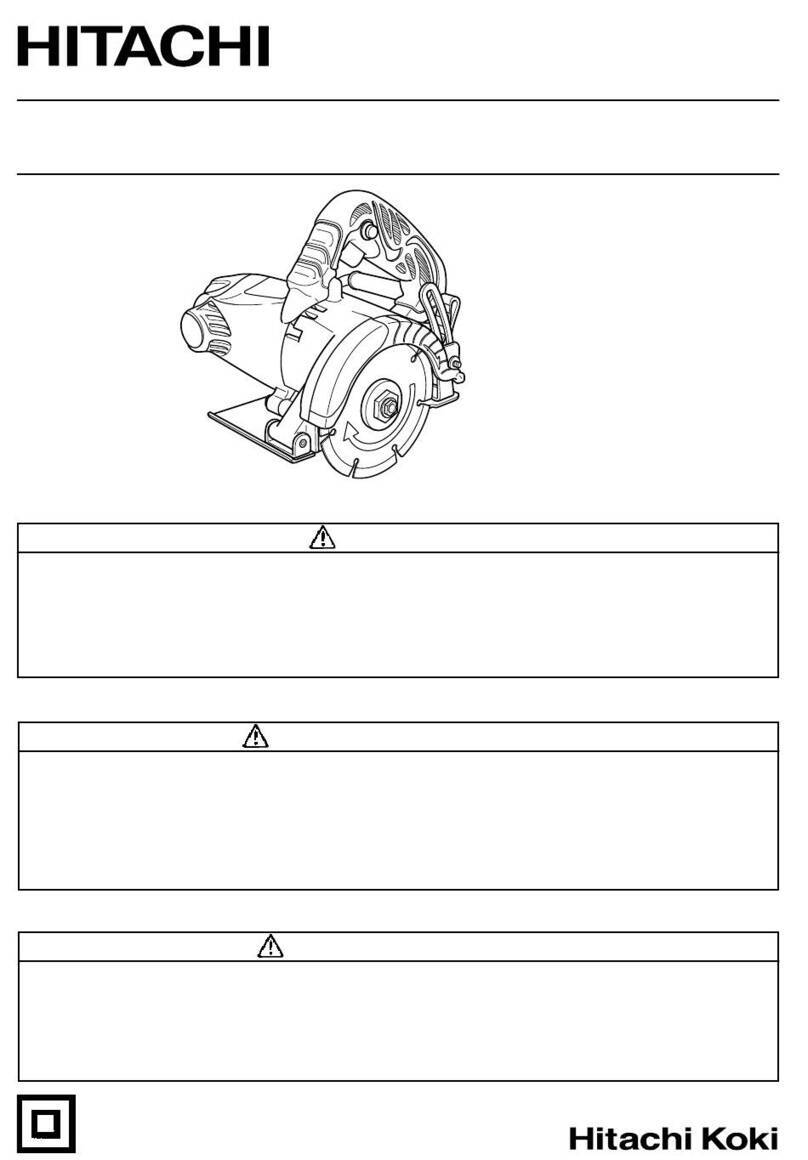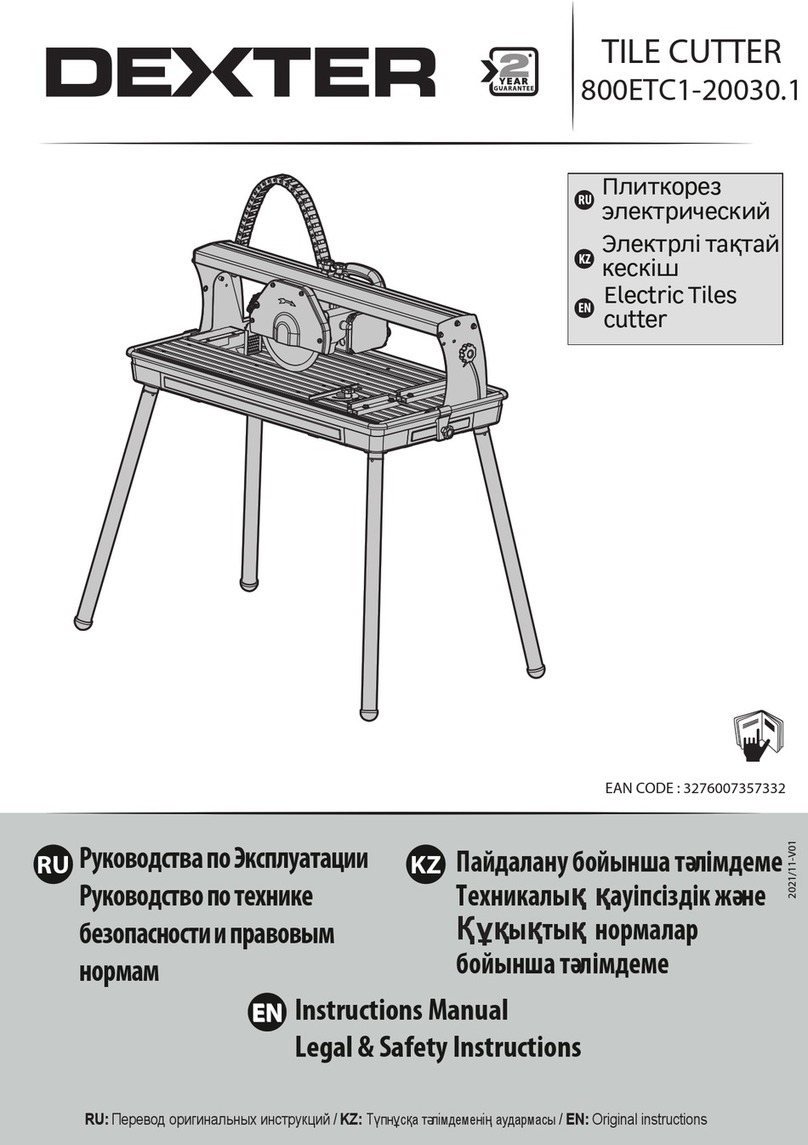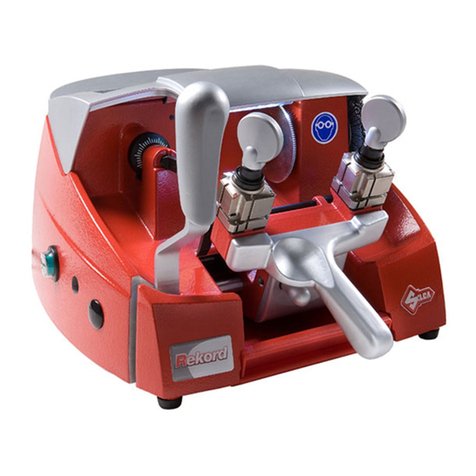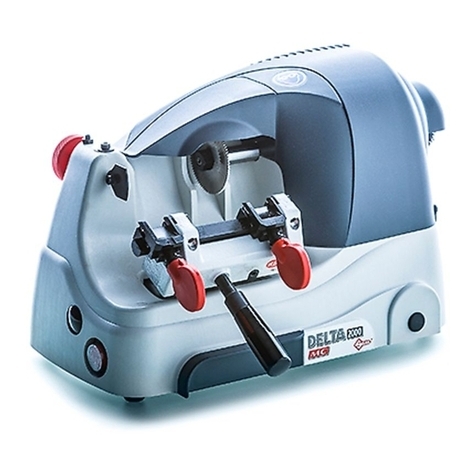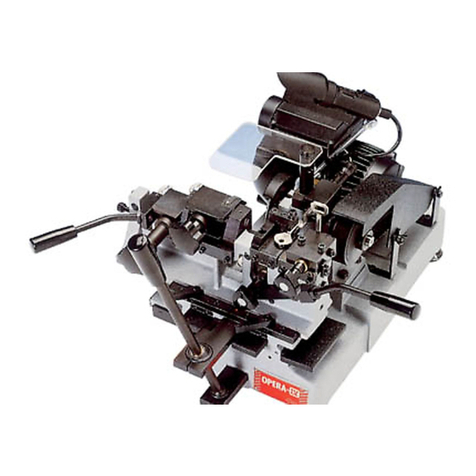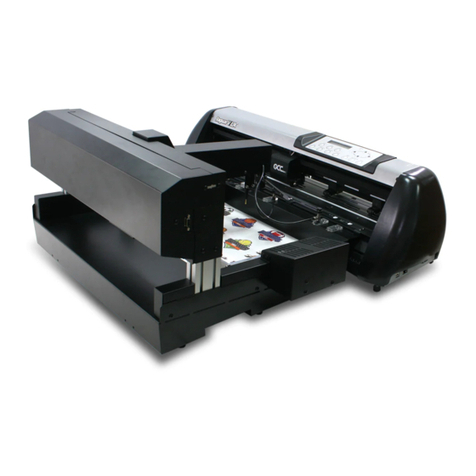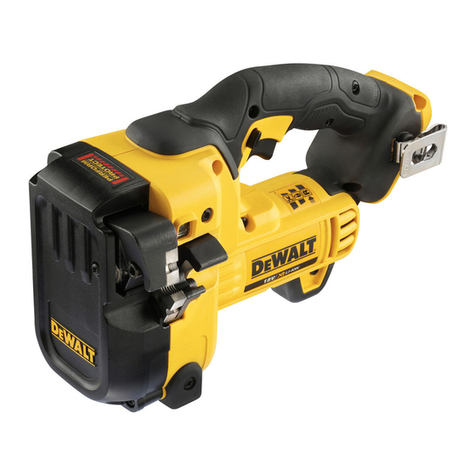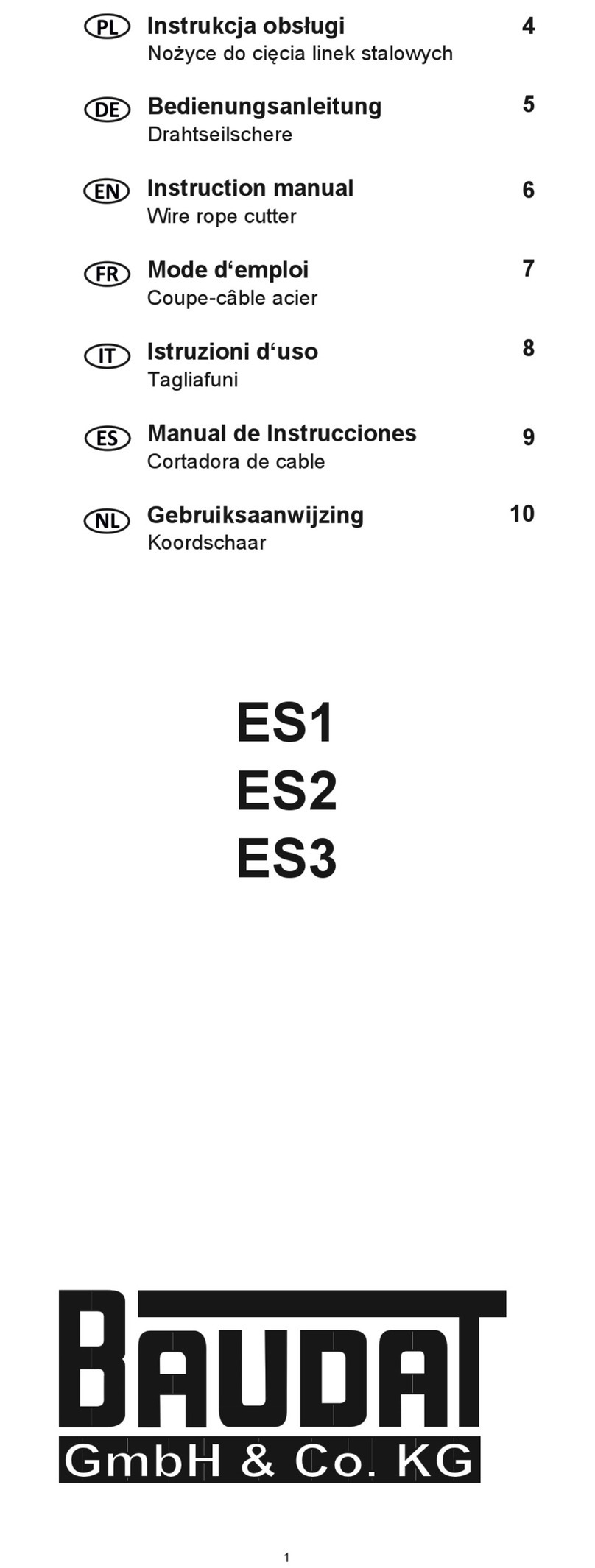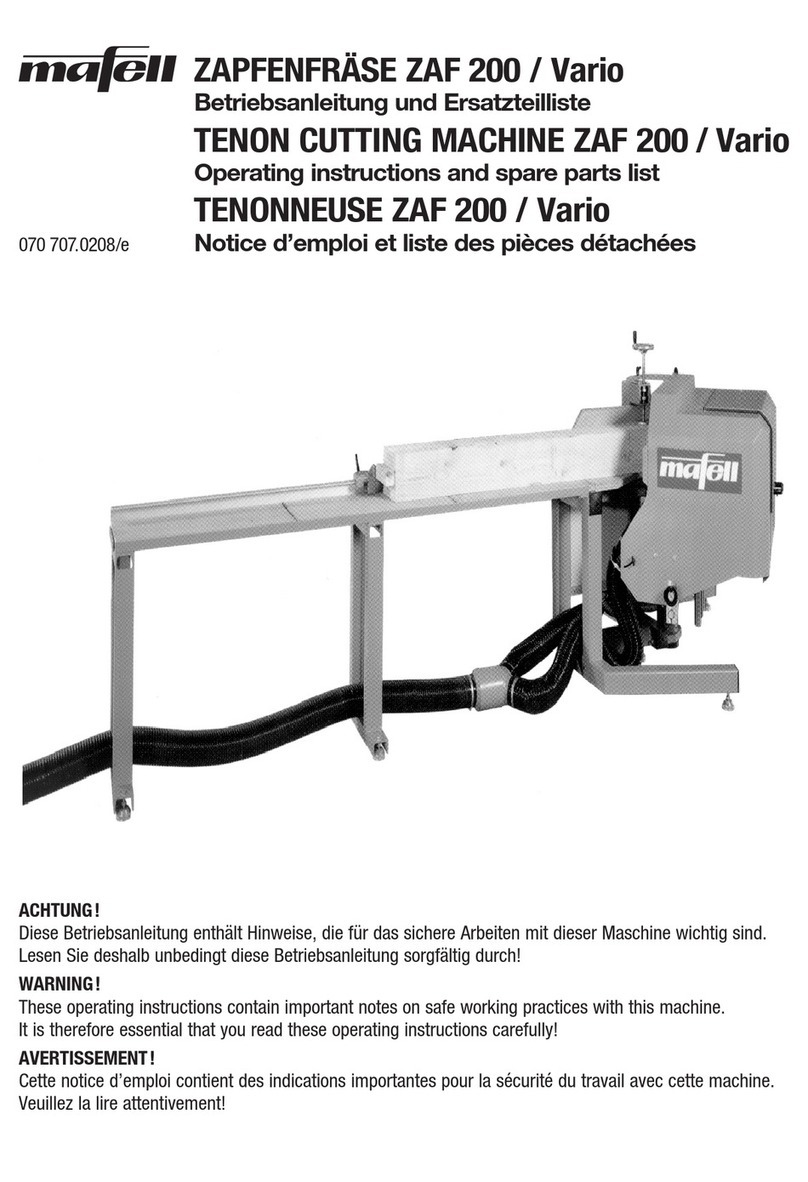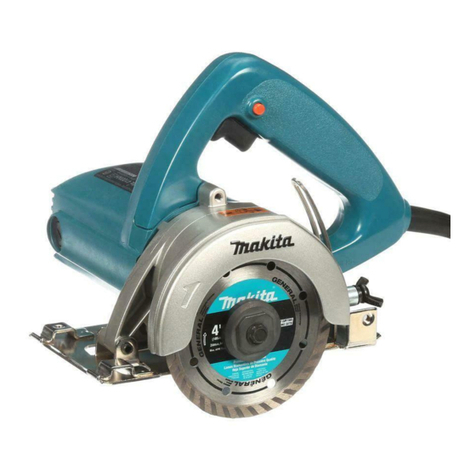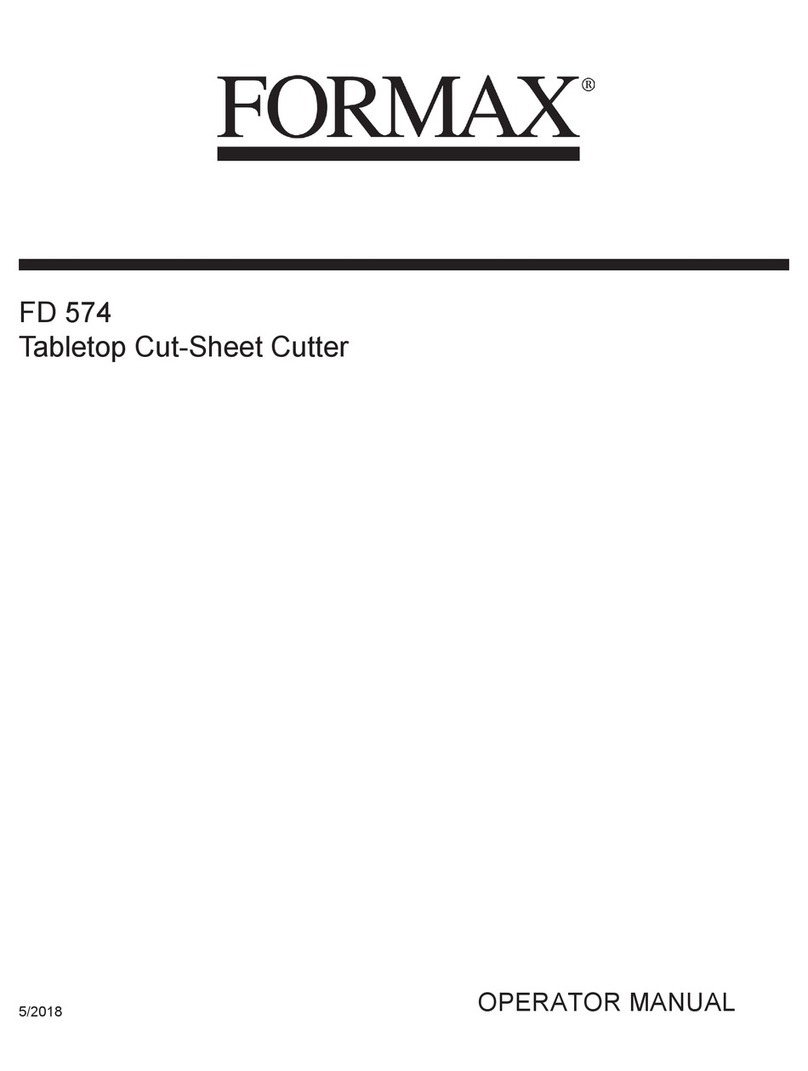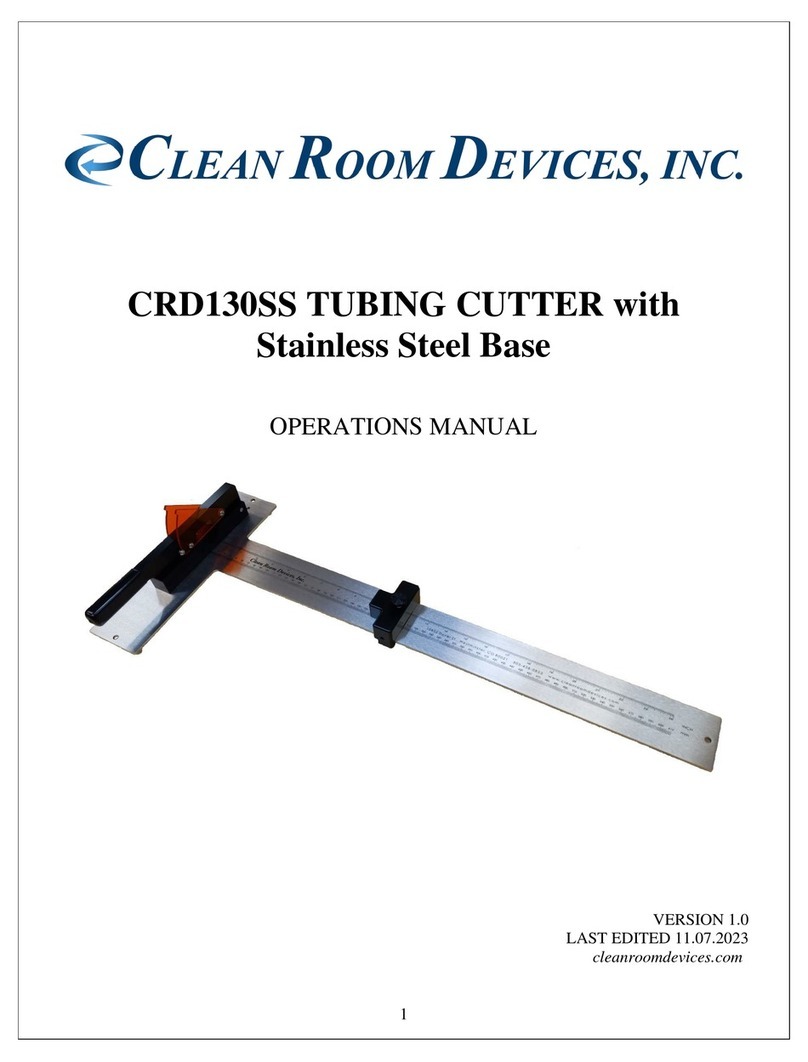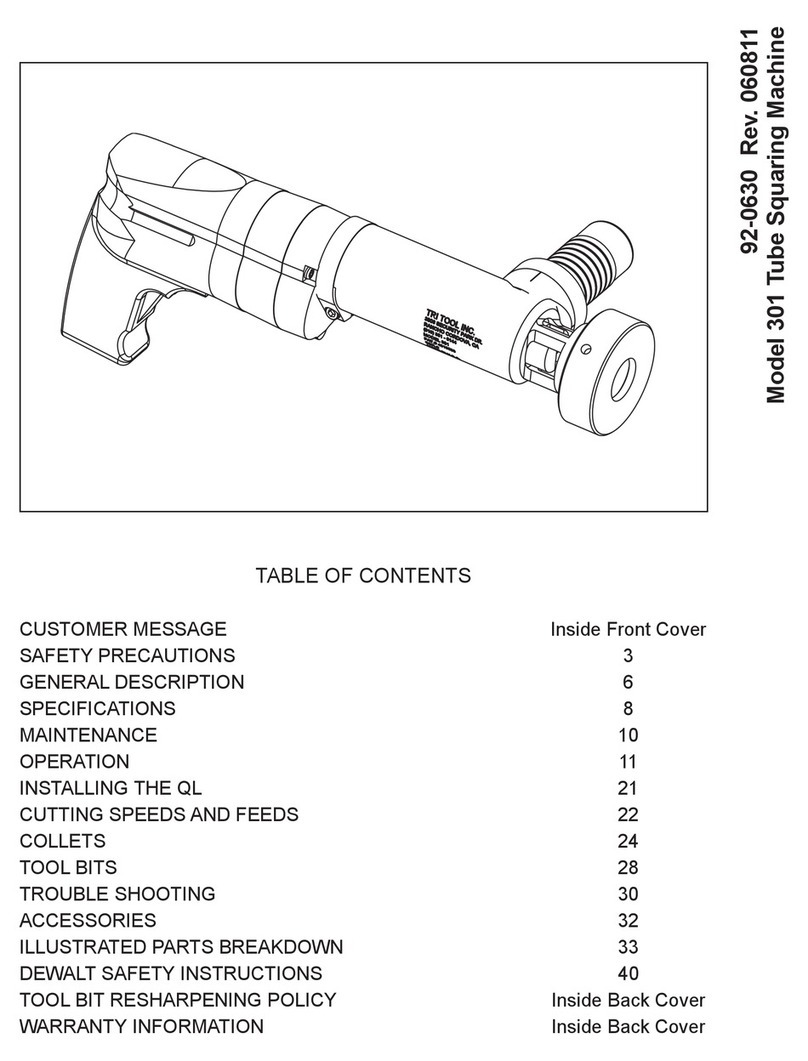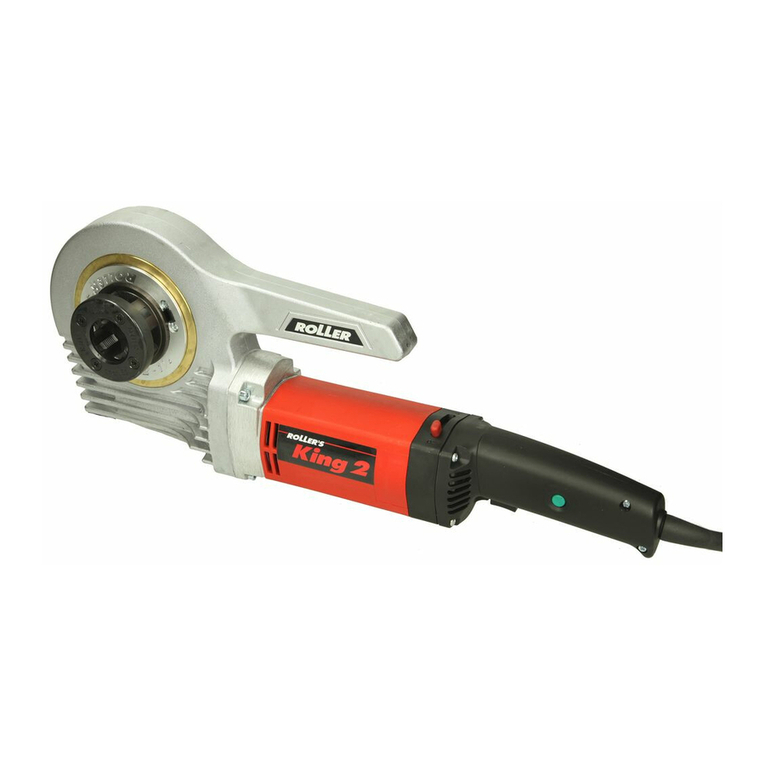
INDICE
USE OF THE MANUAL....................................................................................................................... 1
GLOSSARY SYMBOLS-TERMINOLOGY........................................................................................... 2
GENERAL WARNINGS....................................................................................................................... 4
1 MACHINE DESCRIPTION....................................................................................................................5
2 WORKING PARTS - Matrix PRO..........................................................................................................6
3 WORKING PARTS - Matrix EVO..........................................................................................................7
4 ACCESSORIES PROVIDED ................................................................................................................8
4.1 Technical data ...................................................................................................................................8
5 ELECTRIC DIAGRAM .........................................................................................................................9
6 HANDLING .........................................................................................................................................10
6.1 Packing...........................................................................................................................................10
6.2 Transport ........................................................................................................................................10
6.3 Unpacking.......................................................................................................................................10
6.4 Handling the machine.....................................................................................................................10
7 MACHINE INSTALLATION AND PREPARATION ..............................................................................11
7.1 Checking for damage ..................................................................................................................... 11
7.2 Environmental conditions ............................................................................................................... 11
7.3 Positioning...................................................................................................................................... 11
7.4 Safety devices ................................................................................................................................ 11
7.5 Work station description .................................................................................................................12
7.6 Starting the key-cutting machine ....................................................................................................13
7.6.1 Starting the motor.......................................................................................................................... 13
7.6.2 Cutter motor on warning light ........................................................................................................ 13
7.6.3 Led lamp (matrix pro version)........................................................................................................ 13
7.6.4 Led lamp (matrix evo version) ....................................................................................................... 13
8 MACHINE CALIBRATION AND REGULATION ..................................................................................14
8.1 Fitting and removing tools ..............................................................................................................14
8.2 Micrometer gauge...........................................................................................................................15
8.3 Calibration / tool alignment.............................................................................................................16
8.4 Tracer point spring..........................................................................................................................17
8.5 Carriage spring for laser keys.........................................................................................................18
8.6 Clamps ...........................................................................................................................................20
8.6.1 The clamp unit has several seats dedicated to the positioning of different types of keys: ............ 21
9 CUTTING............................................................................................................................................25
9.1 Fitting keys .....................................................................................................................................25
9.2 Key stop..........................................................................................................................................25
9.3 Cutting dimple keys ......................................................................................................................26
9.3.1 Back cuts ..................................................................................................................................... 26
9.3.2 Inclined cuts................................................................................................................................... 27
9.4 Cutting laser type keys ..................................................................................................................28
9.4.1 Cutting laser keys with narrow stems............................................................................................ 29
9.5 Cutting chet type keys (h prole) ..................................................................................................30
